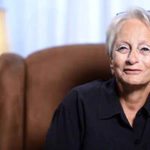
We know cancer impacts children, yet, generally speaking, we don’t talk much about it.
Admittedly, it’s Tough to Talk About. This month’s article focuses on childhood cancer, timed in September to align with Childhood Cancer Awareness month. It’s time we speak up about this disease that is impacting tens of thousands of children nationwide and right here in our community. Perhaps the best way to speak up starts with speaking TO those who have been personally impacted by cancer.
We spoke with two families from our Lake Nona community – the Sheerer family and the Collins family – each of whom has tragically lost a child to cancer (Trevor & Hailey). Both families candidly shared their personal sentiments with us, and we are immensely grateful. This may be tough to read. Please proceed with an open heart.
First things first, we must accept the fact that childhood cancer is a reality. It is estimated that, each day, 46 children are diagnosed with cancer in the U.S. That’s nearly two classrooms of children. Daily. Do the math! That’s more than 16,000 children and families who will introduce the word “cancer” into their daily vocabulary in a given year. Yet, despite its prevalence, about 5% of cancer research dollars nationwide are directed toward pediatric cancer research. Awareness is needed. Philanthropic support is crucial. And conversations are ESSENTIAL.
Perhaps the best way to start speaking up is to speak with parents who have been personally impacted by childhood cancer. But…what do you say to a parent whose child has been diagnosed with cancer? What do you say to the child? No doubt, you genuinely want to connect, but it can be a struggle to find the words. We worry…what if I say something offensive? What if they start to cry? What if I start to cry? So, oftentimes we say nothing. Is it really better to say nothing? Do nothing? A few of these examples are provided here.
Both families agree – there are things you should not say to a family who is enduring a difficult cancer battle. However, equally important, there are things you should say and should do.
Don’t say, “I know how you feel.” Unless you really do, just don’t.
“When you’re going through a situation like this, no one tries to offend a parent or make them angry. The one thing is just not to tell somebody you can imagine what it’s like, because unless you’re in that situation you really cannot know what it’s like.” – Lisa & Tom Collins
Don’t offer help. Just do it.
“We had a hard time accepting help. People would ask us what they could do, and we never felt comfortable telling people what we needed, we would just make do. It was when people cut our grass or dropped meals off without us asking that helped out a lot. Really, it was the little things.” – Lisa & Tom Collins
“We are blessed to live in an amazing neighborhood. When Trev was first diagnosed, everyone wanted to do something, but at first you have no idea what to tell them or what to say as you yourself have no idea what to expect or do. Meals and mowing lawns unexpectedly was perfect. We did the meals when Trevor was going through radiation nonstop, and it helped so much.
“Take your kids to visit their friend! Some friends knew when he was not well, and they would come visit at the hospital or at home, play video games and eat his favorite comfort foods. Also, when Trevor relapsed, it was around Christmas time. A few neighbors came and decorated our house for Christmas. When Trevor got home, he was so shocked and happy. We were not in the Christmas spirit at all, and that made such a big difference.” – Jody & Tim Scheerer
Say their name.
“We love hearing Hailey’s name, and we love when people want to talk about her. But that stuff makes some people feel uncomfortable, and we understand. We encourage people to talk with us about her and her story. We love hearing people mention and talk about Hailey’s impact in their lives.” – Tom & Lisa Collins
“Living without Trevor is really hard. People do not always like to mention his name around us; they cannot imagine a life without their child and then see us, and it’s hard for them. We want you to talk about our boy and tell us stories. You never know, it could be one we did not know about, and that would be amazing.” – Jody and Tim Scheerer
There’s nothing “lucky” about cancer.
“The hospital has foundations and people who come to the hospital, so sometimes Trev would meet famous sports people or get tickets to go to Disney or to an Orlando Magic game, etc. People would say, ‘Your family is so lucky to do all these things,’ or ‘Trevor is so lucky.’ Although it was fun and took his mind off things and he had the opportunity to go and meet these people and have these experiences, we would trade places in a heartbeat. If we had the choice between cancer or to experience all these amazing things, we would choose NO CANCER every time.” – Jody and Tim Scheerer
Do counsel your own kids.
“I would hate that the kids at school would tease him about not having hair, or tell him he could die because their grandparents did. Although kids will be kids, I wish schools and parents had education sessions about the disease and could better teach their kids that teasing and bullying is not okay at anytime, especially if a child is sick or has cancer.” – Jody and Tim Scheerer
Do Donate.
“Gift cards for restaurants, stores, donations for park tickets – these are things that can help families make good, happy memories with their child. Also, donating to the Child Life program at a children’s hospital helps ALL children who are in the hospital.” – Lisa & Tom Collins
Do Something.
“Something that helped a lot was making memories. When Trev was diagnosed, I felt the need to live every minute like it was his last, which can be mentally and emotionally exhausting, but I’m so thankful we did. Because of our amazing neighborhood, the first fundraiser held for us was called Light Up the Night for Trevor’s Fight. A few moms from the green and neighborhood got together to organize a run/walk at our YMCA and then a party afterwards. They did this in two weeks! This night was Trevor’s favorite night. All his friends from school, neighborhood, nurses and friends came out to support us. After the walk, they had music and food set up, and we all just danced and had fun. We have never felt so much love for my boy and family before that night.
“I think it also helped the neighborhood as everyone wants to do something but does not know what. This happened a year after diagnosis, so the timing was perfect. Also, volunteering or donating to the hospital oncology unit is helpful, and also getting a group together and providing a lunch or dinner at the Ronald McDonald House for the families.
“Lake Nona Run Club created Lake Nona 13.1 race as a fundraiser and did amazing things for our family and neighborhood. We made so many memories, especially with his Make-A-Wish trip, swimming with dolphins. This was made possible by some of the organizations at the hospital. I have these pictures now and look at them and feel so thankful that we have those memories.” – Jody & Tim Scheerer
Don’t tell parents how to feel.
“Some will say, ‘At least Trevor is pain free, happy and playing in heaven with all his friends.’ Although I want to believe all this, I know that Trevor’s happiest place was here with us and his friends playing on the grassy green lawn. That is the only place he ever wanted to be.” – Jody & Tim Scheerer
Closing Thoughts:
“For Tom and I, we didn’t want people feeling sorry for us. We just wanted our family to blend like all other families. We wanted some sort of normalcy to our lives among the chaos. I understand that’s easier said than done and that people inherently feel bad because they can only imagine if that had been their child.” – Lisa & Tom Collins
“When you lose your child, it feels like you have now been sentenced to a life of unimaginable pain that you cannot escape. Then you see other cancer families you know that have lost their child, and it hits you again because you know how that family feels and the pain they will now have to live with. There are days you get through and other days you feel so overwhelmed at the fact that they are not here with you, it hurts.” – Jody & Tim Scheerer
No parent should ever bury a child. Period. It is not the normal course of life for a parent to bury a child. When a spouse loses a spouse, he/she is called a widow. When a child loses a parent, they are called orphans. When a parent loses a child…there is no name for that! Because no parent should be losing a child.
Childhood cancer is a big problem. The Hailey Collins Foundation is a local Nonahood foundation that strives to make kids going through cancer feel a little better with their donations to Child Life. If you want to help make a difference, please reach out to them via Facebook.


